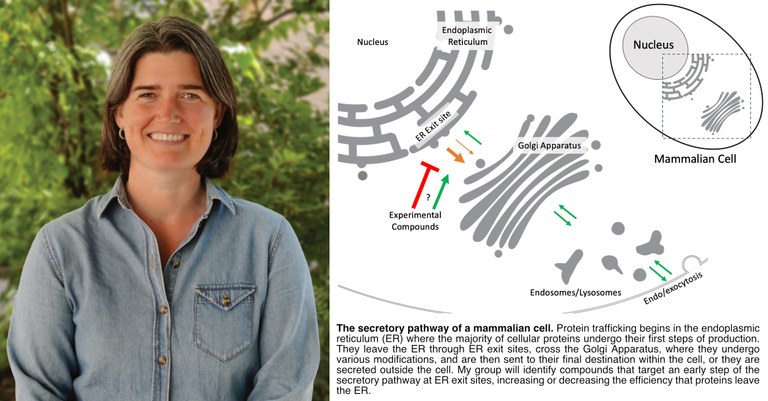Portrait of an FNRS researcher: Alison Forrester, the biologist who scrutinizes the efficiency of the protein production process
All processes in our body are reliant on cells, and their well-being and efficient function are essential for our health. A key process in the cell is the creation of proteins, that enable the cell to perform the diverse roles required to maintain the function of the body and its organs. These functions include converting food to energy, communication between neurons in the brain, or secretion of proteins to form the scaffold that provides the strength of our tissues such as bone and skin.
The process of making and transporting proteins is complex, and it can go wrong. In some cases, too many, too few, or the wrong proteins are made and secreted by the cell, which causes disruption in the body, and can lead to the development of diseases, for example in fibrosis. My group will study how we can use different compounds to change the efficiency of the cellular process of protein trafficking, and how this will affect normal balance within the cell. Finally, we aim to test these compounds against different diseases that are caused by disruption of protein trafficking, thus designing a new therapeutic approach.
Currently a post-doctoral researcher at the Institute Curie, Paris, France, Alison Forrester has just been awarded an FNRS position as Chercheur qualifié at the UNamur, where she will soon become a member of the NARILIS Institute. Her expertise comprises autophagy in homeostasis and disease, and membrane trafficking. She has a special interest in the endoplasmic reticulum (ER) and ER exit sites. Since her PhD in 2012, she has built up advanced skills in confocal and advanced imaging techniques, including spinning disk, scanning confocal, Airyscan, FRAP, live cell imaging, electron microscopy, correlated light and electron microscopy (CLEM) and Lattice light-sheet microscopy. She is passionate about performing cutting edge, creative research without boundaries, working in multidisciplinary and collaborative environments. She is also passionate about conveying her enthusiasm for research, and providing first hand experiences to people through outreach initiatives, such as school visits, science fairs, talks and interviews, as well as classical seminars and talks to the science community.












